Aug
24
2010
or Mutton Dressed Up as the Lamb
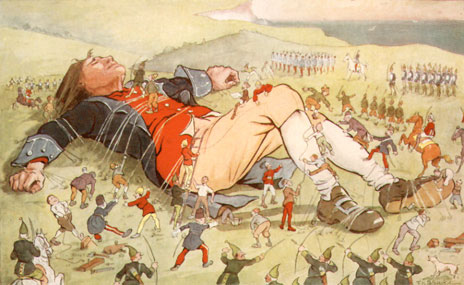
Doug Wilson recently made a distinction between what usually passes for hypocrisy in Christian circles, and the kind practiced openly by the self-righteous:
One of my central pastoral responsibilities is that of keeping Christians away from hypocrisy, of the kind described in the New Testament. But this task, not surprisingly, is often misunderstood — and the reason it is misunderstood is that there are always lots of people who don’t want to be kept out of that kind of hypocrisy, and misdirection is that name of the game.
Continue reading
Comments Off | tags: AD70, Doug Wilson, Esther, Haman, Herod, Hypocrisy | posted in Biblical Theology, Quotes
Aug
23
2010
Psalm 114 – Family of Blood
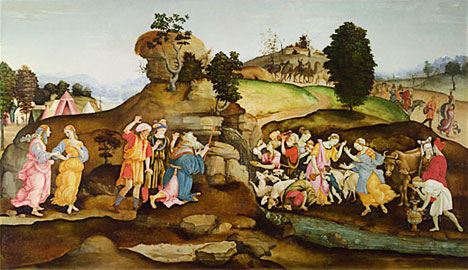
Psalm 114 is one of those weird passages of Scripture that makes you wonder if the author was high on something. Without an understanding of the significance of the place of this song among these seven Psalms, the lyrics appear to be either the overly-clever, sophomoric crypticism of an ancient Bono or the fragmented derivatory prattlings of a madman.
Continue reading
4 comments | tags: Babel, Egypt, Literary Structure, Numbers, Peter Leithart, Psalms, Zechariah | posted in Bible Matrix, Biblical Theology
Aug
21
2010
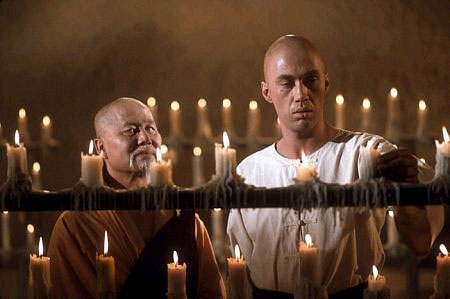
James B. Jordan on Bible Matrix:
Continue reading
Comments Off | tags: James Jordan | posted in Bible Matrix, Biblical Theology
Aug
19
2010
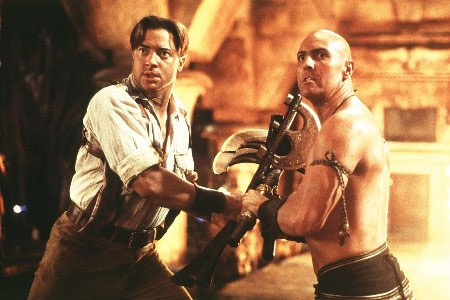
Psalm 113
God uses anthropomorphisms throughout the Bible. Man was made in His image, so when you give someone a right hook (that’s a figure of speech meaning a quick punch with a medium to narrow radius, just in case you aren’t used to figures of speech) you are doing something with your God-given body that God can do with a single Word. But the Word takes on flesh.
Continue reading
2 comments | posted in Bible Matrix, Biblical Theology, The Last Days
Aug
18
2010
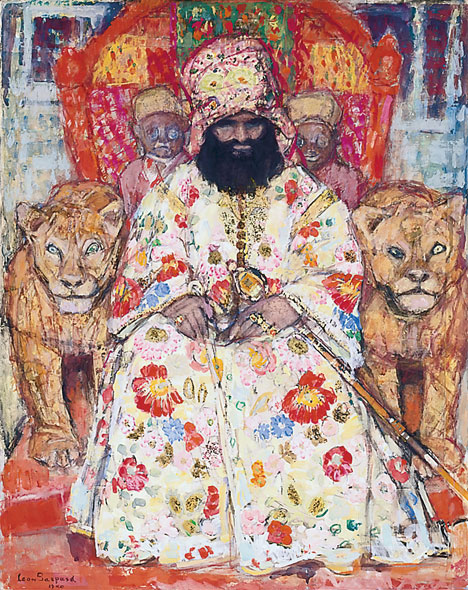
“I am the Door.”
The second part of both the Covenant and matrix structures concerns the authority of the transcendent God being delegated to His servant. Very often, a book of prophecy begins with a vision of the Lord, which promptly knocks Adam onto his face as a dead man, and the destroyer passes over him in the darkness. He is “waters divided.” He is called to be separate from the world, and this sanctification begins with mortification. [1] So Psalm 112, as the second in this Covenant song-cycle, concerns the outcome in the world of the faithful use of God’s authority by His Adam.
Comments Off | tags: Passover, Psalms, Solomon, Systematic typology | posted in Bible Matrix, Biblical Theology
Aug
17
2010

Here’s my go at the structure of the first of these seven praise psalms. (The introduction is here.) Apparently, it has five verses, following the Covenant structure. Within this, each stanza also has five lines, which echo the same structure while maintaining the theme of the stanza. The only exception is verse 4 which concerns the Sanctions. It has seven lines. As I maintain, the 5-point Covenant model expands into the 7-point matrix as Ethics gets split into three: Law opened/Death under the Law/Resurrection fulfilling the Law. 5-point Word creates 7-point History. The Sanctions correspond to the Day of Atonement (Conquest) which has the theme of the resurrected body ascending to govern under God. On that Day, every year, Israel died and rose again.
Comments Off | tags: Psalms | posted in Bible Matrix, Biblical Theology, Creation
Aug
16
2010
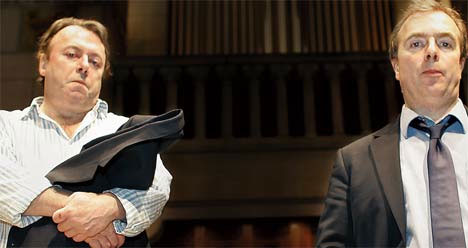
[Some thoughts on Peter Hitchens’ The Rage Against God (and some great quotes) from Mark Thompson’s blog.]
I have been reading an immensely interesting book in the last couple of weeks. It is by Peter Hitchens, British journalist, author, broadcaster and brother of celebrated ‘new atheist’ Christopher Hitchens.
Continue reading
Comments Off | tags: Christopher Hitchens, Peter Hitchens | posted in Apologetics, Quotes
Aug
16
2010

Psalms 111 to 117 are the “Praise the Lord” psalms, an obvious unit due to the repetition of that phrase. Are they arranged in any order, or is there some internal logic going on? You know what I’m going to say next, don’t you?
Continue reading
2 comments | tags: Fractals, Literary Structure, Psalms | posted in Bible Matrix, Biblical Theology
Aug
14
2010

“Do you suppose that I came to give peace on earth? I tell you, not at all, but rather division.” Luke 12:51
Another weird idea James Jordan presents in his Revelation lectures is the premise that the famous Four Horsemen of the Apocalypse represent the gospel. As Uri Brito wrote a couple of years ago, first you think Jordan is nuts; then, as you continue to study, you think he is less nuts. Finally you give in and accept his genius, because his premise is vindicated by the similar use of the symbols in the Old Testament, and the literary structure of the event.
Continue reading
Comments Off | tags: AD70, Balaam, Herod, John, Literary Structure, Numbers, Revelation, Systematic typology, Zechariah | posted in Bible Matrix, Biblical Theology, The Last Days, The Restoration Era
Aug
13
2010
 From Tim Nichols:
From Tim Nichols:
Gregory the Theologian said, “What is not assumed cannot be healed,” and this is true. For exactly that reason, Jesus Christ, the Second Person of the Triune God, assumed full humanity at His incarnation. In Jesus, we have a spectacular demonstration that man, the image of God, is an accurate image, and can partake in the divine nature. Nothing human is foreign to Him; there is no part of you that you can point to and say, “Jesus didn’t have to deal with this.”
Continue reading
Comments Off | tags: Holiness, Tim Nichols | posted in Christian Life, Quotes



































